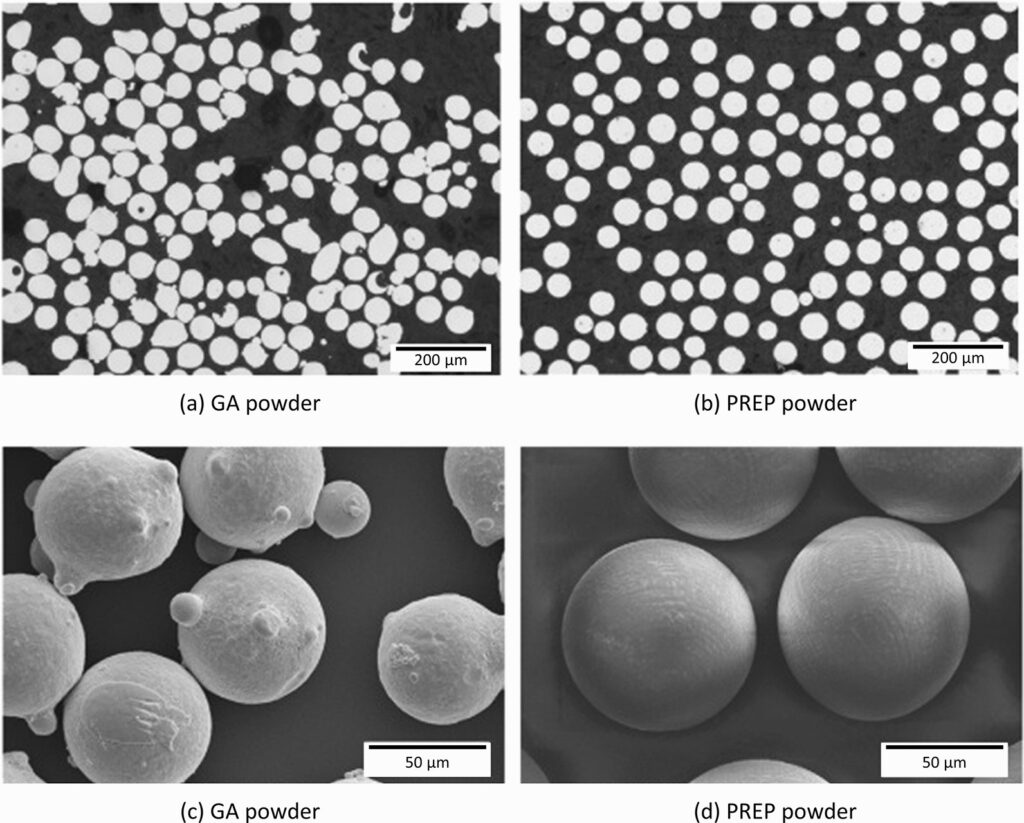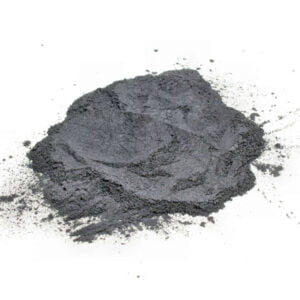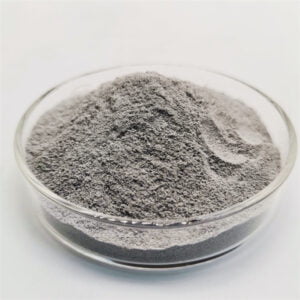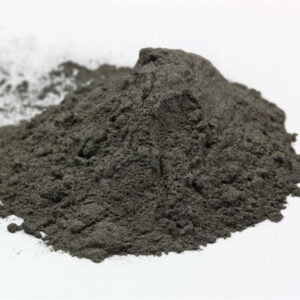
CuSn40 Powder: Maximize Performance in Harsh Environments
Low MOQ
Provide low minimum order quantity to meet different needs.
OEM & ODM
Provide customized products and design services to meet unique customer needs.
Adequate Stock
Ensure fast order processing and provide reliable and efficient service.
Customer Satisfaction
Provide high quality products with customer satisfaction at the core.
share this article
Table of Contents
When it comes to choosing materials for high-performance applications, CuSn40 powder is a standout. This bronze alloy, composed of 40% tin and 60% copper, offers incredible strength, corrosion resistance, and wear resistance. It’s no wonder that CuSn40 is a go-to material in industries like marine engineering, automotive manufacturing, and aerospace. But what exactly makes CuSn40 powder special, and how does it compare to other copper-tin alloys?
In this detailed guide, we’ll dive deep into the composition, properties, applications, specifications, pricing, and much more about CuSn40 powder. Whether you’re an engineer, a materials scientist, or someone looking to understand whether CuSn40 is right for your next project, this article breaks down everything you need to know in a friendly and informal way.
Overview of CuSn40 Powder
What is CuSn40 Powder?
CuSn40 powder is a bronze alloy that contains 60% copper (Cu) and 40% tin (Sn). Its high tin content is what gives it its outstanding corrosion resistance and wear properties. This alloy is well-known for its ability to withstand harsh environments, particularly those involving saltwater, acids, and other corrosive substances. The powder form of CuSn40 makes it ideal for powder metallurgy, 3D printing, and other additive manufacturing processes.
In a nutshell, CuSn40 is a material that combines durability, strength, and exceptional corrosion resistance, making it indispensable for industries that need components to perform under pressure.
Key Features of CuSn40 Powder
- Superior corrosion resistance: Especially in marine environments.
- High wear resistance: Great for high-friction applications.
- High tin content: Contributes to added strength and durability.
- Good machinability: Easier to shape compared to other high-tin bronzes.
- Powder form versatility: Ideal for additive manufacturing and sintering.
CuSn40 Powder Composition
Understanding the composition of CuSn40 powder is essential to grasping why it performs so well in demanding environments. The high tin content of 40% provides strength and corrosion resistance, while the 60% copper gives the alloy ductility and thermal conductivity.
CuSn40 Powder Composition Breakdown
| Element | Percentage (%) | Role in Alloy |
|---|---|---|
| Copper (Cu) | 60% | Provides ductility, thermal conductivity, and stability. |
| Tin (Sn) | 40% | Enhances strength, corrosion resistance, and hardness. |
The high tin content makes CuSn40 an excellent material for applications where corrosion resistance is a top priority, especially in marine or acidic environments. On the other hand, the copper component ensures that the alloy remains ductile and machinable, allowing it to be easily shaped into complex parts.
Properties and Characteristics of CuSn40 Powder
The mechanical and physical properties of CuSn40 powder are what make it stand out from other materials. Whether you need strength, wear resistance, or thermal stability, CuSn40 has a lot to offer. Let’s break down some of the key properties that make this alloy so attractive for various industries.
Key Properties
| Property | Value | Explanation |
|---|---|---|
| Density | 8.9 g/cm³ | High density ensures durability and strength. |
| Melting Range | 780°C – 1000°C | Ideal for high-temperature applications. |
| Tensile Strength | 400 – 450 MPa | High tensile strength makes it perfect for load-bearing applications. |
| Hardness (Brinell) | 100 – 130 HB | Excellent hardness provides wear resistance in friction-heavy environments. |
| Electrical Conductivity | 7 – 10% IACS | Moderate conductivity, suitable for thermal applications. |
| Corrosion Resistance | Excellent | Performs exceptionally well in saltwater and acidic conditions. |
| Thermal Conductivity | 50 – 65 W/m·K | Good for heat dissipation, making it useful in thermal management. |
| Machinability | Good | Easier to machine compared to other high-tin bronzes. |
Thanks to its high tin content, CuSn40 offers excellent corrosion resistance and wear properties, making it ideal for marine and industrial applications. Its mechanical strength ensures that it can be used for load-bearing components, while its thermal conductivity makes it a good candidate for applications that require heat dissipation.
Applications of CuSn40 Powder
Thanks to its unique combination of strength, corrosion resistance, and wear resistance, CuSn40 powder finds use in a wide range of industries. Whether in marine engineering, automotive, or aerospace, CuSn40 is a top choice for components that need to withstand harsh environments and high levels of stress.
Common Uses
| Industry | Application | Why CuSn40 Is Used |
|---|---|---|
| Marine | Propellers, valves, pumps | Superior corrosion resistance in saltwater environments. |
| Automotive | Bearings, bushings, gears | High wear resistance and strength for friction-heavy components. |
| Aerospace | Bearings, landing gear components | High strength-to-weight ratio and durability in high-stress areas. |
| Industrial Machinery | Gears, dies, molds | High hardness and wear resistance for heavy-duty operations. |
| Construction | Architectural hardware, fittings | Combines aesthetic appeal with long-term durability. |
Marine Applications of CuSn40 Powder
CuSn40 is a popular choice in marine engineering due to its superior corrosion resistance in saltwater environments. Components like propellers, pumps, and valves made from CuSn40 can endure harsh conditions over long periods without degrading, making them reliable and cost-effective in the long run.
Automotive and Aerospace Applications of CuSn40 Powder
In the automotive industry, CuSn40 is commonly used for bearings, bushings, and gears that need to withstand high levels of friction and wear. Its durability reduces the need for frequent replacements, which is especially valuable in high-performance vehicles.
In aerospace, CuSn40’s high strength-to-weight ratio makes it ideal for components like landing gear and bearings, where weight and durability are critical.
Specifications, Sizes, and Standards for CuSn40 Powder
When selecting CuSn40 powder, it’s essential to understand its specifications, sizes, and standards. These parameters will help you choose the right powder for your specific application, ensuring optimal performance and longevity.
Important Specifications and Sizes
| Specification | Details |
|---|---|
| Particle Size | Typically ranges from 20 to 150 microns, depending on the application. |
| Purity | Typically 99%+, ensuring consistent mechanical properties. |
| ISO 9001 Certification | Available from certified suppliers, ensuring product consistency and quality. |
| ASTM B505 | Standard for continuous cast copper alloy, including CuSn40. |
| Form | Available as powder, ingots, or bars for different manufacturing needs. |
Choosing the Right Size and Grade
Selecting the right particle size for your application is crucial. For additive manufacturing and powder metallurgy, finer powders (20-50 microns) are preferred for creating detailed components. Larger particle sizes (50-150 microns) are better suited for casting and sintering, where strength and hardness are prioritized.
Suppliers and Pricing of CuSn40 Powder
When sourcing CuSn40 powder, the price can depend on factors such as purity, particle size, and supplier reputation. Below is a list of some top suppliers and their pricing details for CuSn40 powder.
Top Suppliers and Prices
| Supplier | Price Range (per kg) | Notes |
|---|---|---|
| American Elements | $70 – $160 | Specializes in high-purity CuSn40 powder for industrial applications. |
| Höganäs AB | $65 – $150 | Offers customized particle sizes for marine and aerospace uses. |
| Makin Metal Powders | $60 – $140 | Known for producing high-grade copper alloys for various industries. |
| Belmont Metals | $75 – $165 | Specializes in precision-grade CuSn40 powder for casting and sintering. |
Factors Affecting Pricing
Several factors can influence the price of CuSn40 powder, including:
- Purity: Higher purity levels generally command higher prices.
- Particle Size: Finer powders are more expensive due to the additional processing required.
- Supplier Reputation: Established suppliers may charge more for certified, high-quality materials.
Advantages and Limitations of CuSn40 Powder
Like any material, CuSn40 powder has its advantages and limitations. While its corrosion resistance, wear properties, and strength make it an outstanding material for many applications, it’s important to consider its drawbacks as well.
Advantages
| Advantage | Why It’s Important |
|---|---|
| Exceptional Corrosion Resistance | Perfect for use in marine and acidic environments. |
| High Wear Resistance | Ideal for high-friction applications like bearings and gears. |
| Good Machinability | Easier to shape compared to other high-tin bronzes. |
| High Strength and Hardness | Suitable for heavy-duty and load-bearing components. |
| Thermal Stability | Performs well in high-temperature applications like engines. |
Limitations
| Limitation | Why It’s a Concern |
|---|---|
| Lower Electrical Conductivity | Less suitable for electrical applications compared to other copper alloys. |
| Higher Cost | More expensive than other bronzes like CuSn6 or brass. |
| Oxidation | Can oxidize over time without proper coatings or treatments. |
CuSn40 Powder vs Other Copper Alloys
When considering CuSn40 powder, it’s helpful to compare it with other popular copper alloys to understand where it excels and where it falls behind. Below, we compare CuSn40 to other alloys like CuSn6 and brass.
CuSn40 Powder Compared to Other Alloys
| Alloy | Strengths | Weaknesses |
|---|---|---|
| CuSn40 Powder | High corrosion resistance, strength, and wear resistance. | Higher cost compared to CuSn6 and brass. |
| CuSn6 Alloy | Better electrical conductivity and ductility. | Lower strength and wear resistance compared to CuSn40. |
| Brass (CuZn) | Affordable, easier to machine for low-stress applications. | Poor wear resistance and corrosion resistance compared to CuSn40. |
| Pure Copper | Best thermal and electrical conductivity. | Lacks mechanical strength and wear resistance. |
Why You Should Choose CuSn40 Over Other Alloys
- Superior Strength and Wear Resistance: CuSn40 offers better mechanical strength and wear resistance than CuSn6 and brass, making it ideal for high-stress applications.
- Corrosion Resistance: CuSn40 excels in environments where corrosion is a major concern, outperforming brass and CuSn6 in marine and acidic environments.
- Cost vs. Performance: While CuSn40 is more expensive, its high performance in demanding conditions often justifies the additional cost.
Frequently Asked Questions (FAQs)
FAQ Section
| Question | Answer |
|---|---|
| What is CuSn40 powder used for? | Common applications include bearings, gears, bushings, and marine components due to its corrosion resistance and wear resistance. |
| How much does CuSn40 powder cost? | Prices range from $60 to $165 per kg, depending on purity and particle size. |
| What industries commonly use CuSn40 powder? | CuSn40 is widely used in marine, automotive, aerospace, and industrial machinery industries. |
| How does CuSn40 compare to CuSn6? | CuSn40 offers better wear resistance and strength, while CuSn6 has slightly higher ductility and conductivity. |
| Is CuSn40 powder environmentally friendly? | Yes, it is recyclable, and its durability helps reduce waste by extending the lifespan of components. |
| Can CuSn40 powder be used in additive manufacturing? | Yes, CuSn40 powder is suitable for 3D printing and powder metallurgy applications. |
| Does CuSn40 powder oxidize? | Yes, it can oxidize over time, particularly in outdoor environments, but proper coatings or treatments can prevent oxidation. |
Conclusion: Is CuSn40 Powder Right for Your Project?
In summary, CuSn40 powder is a high-performance alloy that excels in applications requiring corrosion resistance, strength, and wear resistance. Whether you’re working in marine engineering, automotive manufacturing, or industrial machinery, this alloy offers a range of benefits that make it a solid choice for demanding environments.
While it may be more expensive than other options like CuSn6 or brass, the superior performance of CuSn40 in high-stress and corrosive environments often justifies the extra cost. Its ability to withstand friction, mechanical stress, and exposure to chemicals makes it an excellent material for components that need to perform consistently and reliably over time.
By now, you should have a thorough understanding of CuSn40 powder—from its composition and properties to its applications and pricing. Whether you’re looking to source this material or simply exploring its potential for your next project, CuSn40 powder is definitely worth considering.
Get Latest Price
About Met3DP
Product Category
HOT SALE
CONTACT US
Any questions? Send us message now! We’ll serve your request with a whole team after receiving your message.

Metal Powders for 3D Printing and Additive Manufacturing
COMPANY
PRODUCT
cONTACT INFO
- Qingdao City, Shandong, China
- [email protected]
- [email protected]
- +86 19116340731











